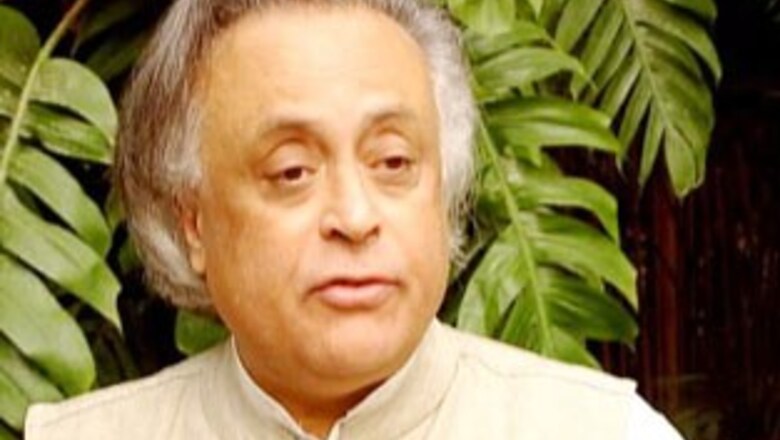
views
New Delhi: India, China, Brazil and South Africa on Sunday announced their support to the Copenhagen Accord to combat climate change but emphasised it was a political rather than a legal agreement, which must feed into a legally binding global accord negotiated by all countries.
After a seven-hour meeting in, environment ministers of BASIC (Brazil, South Africa, India, China) also "expressed their intention to communicate information on their voluntary mitigation actions to the UNFCCC (UN Framework Convention on Climate Change) by January 31, 2010".
The intention, expressed in a joint communique after the meeting, put at rest speculation about whether India and China would support the accord that they -- along with the US, Brazil and South Africa -- had negotiated at the last moments of the Copenhagen climate summit in December.
India's Environment Minister Jairam Ramesh said: "We support the Copenhagen Accord. But all of us were unanimously of the view that its value lies not as a stand-alone document but as an input into the two-track negotiation process under UNFCCC."
One track is on long-term cooperative action to combat climate change. The other is for developed countries to commit to what extent they will reduce their greenhouse gas emissions after 2012, when the current commitment period of the Kyoto Protocol runs out.
BASIC countries asked the UNFCCC secretariat to hold six meetings of negotiators this year, starting in March, so that this process could culminate by the next climate summit in Mexico City this December.
Asked if the Copenhagen Accord would become a legally binding treaty later, Ramesh replied: "It has no hope of doing so."
Official sources said India's support to the accord came after UN Secretary General Ban Ki-moon clarified to Prime Minister Manmohan Singh that the accord was a political statement of intent that would have no legal force.
The Prime Minister had sought this clarification in a letter sent to the UN chief on Friday, a move that prompted the UNFCCC to indefinitely defer its January 31 deadline for countries to indicate their support to the accord.
But the BASIC group would stick to the deadline. South Africa's Water Resources and Environment Minister Buyelwa Sonjica said: "We feel obligated that we must commit what we ourselves were part of. That's a leadership obligation, even if Yvo (de Boer, the UNFCCC chief) has decided to extend the deadline."
In this their second meeting at the ministerial level, all BASIC countries were at pains to state their group was very much a part of the Group of 77 developing countries.
Ramesh said: "Our decisions reflect that BASIC is very much a part of G77." However, Yemen, the current G77 chair, did not attend the meeting, though it had been invited. At the Copenhagen summit, Sudan, then G77 chair, had expressed dissatisfaction because BASIC had negotiated the accord with the US without involving other countries.
Ramesh said: "I want to underline that BASIC is not a parallel group, not a new group, it's embedded in G77 and seeks very much to bring consensus within G77 and also engage in dialogue with developed countries."
BASIC minister will meet once a quarter. The next meeting will be in Cape Town end of April.
Brazil's Environment Minister Carlos Minc said the four countries had also decided to intensify their support to smaller and poorer developing countries so that they could cope with the effects of climate change. It is already lowering farm output, making droughts, floods and storms more frequent and more severe, and raising the sea level.
"The selfishness of rich countries led to frustration at Copenhagen," Minc said. "Against this, we propose solidarity." Later, he said: "Our technological and financial help to poorer countries will be a slap in the face of rich nations."
According to the Brazilian minister, the total help given by BASIC countries to poorer nations was more than the $10 billion rich countries are supposed to give this year under the Copenhagen Accord.
Ramesh pointed out that the BASIC countries were already helping other developing countries to cope with climate change effects. "Today, we discussed ways to do this together, but no conclusions were reached."




















Comments
0 comment